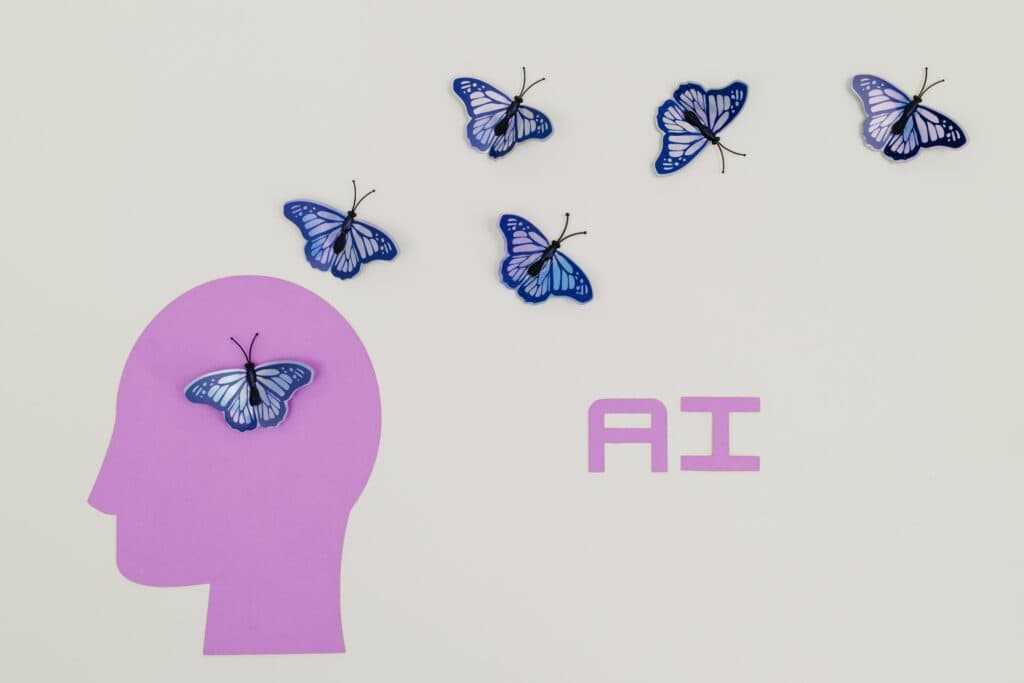Artificial intelligence (AI) has become an integral part of modern technology. Its impact on digital marketing is becoming increasingly clear. AI is transforming how businesses operate, enabling them to understand better and target their audiences, personalize their marketing messages, and automate repetitive tasks. In this article, we will explore how AI affects marketing and the future of digital marketing.
Improved Audience Targeting
One of the primary ways AI affects marketing is by improving audience targeting. AI-powered algorithms are able to analyze large sets of data to identify patterns and insights, enabling businesses to understand their customers better and target them more effectively. This can be achieved through personalized content, offers, and ads tailored to each individual’s preferences.
With AI, businesses can also predict which customers are most likely to convert, and tailor their marketing campaigns to those individuals. This improves the effectiveness of marketing campaigns, as businesses can focus their efforts on those most likely to make a purchase.
Enhanced Customer Experience
AI is also transforming the customer experience, making it more personalized and seamless. Chatbots are becoming increasingly popular, allowing businesses to interact with customers in real time and provide immediate support, while simultaneously avoiding the high costs associated with round-the-clock service. Chatbots use AI to understand customer inquiries and provide relevant responses, improving customer satisfaction.
AI can also be used to analyze customer data, such as purchase history and browsing behavior, to make product recommendations and provide a more personalized experience. Many businesses already utilize this avenue of AI and have found that it can increase customer loyalty, as customers feel valued and appreciated by the business.
Improved Lead Generation
Another way in which AI affects marketing is through improved lead generation. AI can analyze customer behavior and identify patterns, allowing businesses to predict which individuals are most likely to become leads. This can enable businesses to target their marketing efforts better, resulting in more high-quality leads.
Additionally, AI can also be used to automate lead generation, freeing up time for marketers to focus on other important tasks. This can lead to increased productivity and efficiency, and allow businesses to scale their marketing efforts more effectively.
Enhanced Data Analysis
AI can also improve data analysis, providing businesses with insights that would be difficult to identify otherwise. With AI, businesses can analyze large data sets to identify patterns and trends, enabling them to make more informed decisions. This can lead to better marketing campaigns, as businesses can tailor their efforts to the most effective channels and strategies.
AI can also be used to automate data analysis, freeing up time for marketers to focus on strategy and execution. This can lead to increased productivity and efficiency and enable businesses to make more informed decisions based on data.
Improved Marketing ROI
One of the most significant ways AI affects marketing is by improving marketing return on investment (ROI). AI can analyze large data sets to identify patterns and insights, allowing businesses to identify which marketing channels and strategies are most effective. This can result in more effective marketing campaigns, generating more revenue for the business.
AI can also be used to automate marketing tasks, reducing the time and resources required for manual tasks such as data analysis and lead generation. This can increase efficiency and cost savings, enabling businesses to allocate resources more effectively.
AI Limitations in the Digital Marketing World
While AI is certainly an effective tool, there are still many facets of digital marketing that can’t be automated. While leaps and bounds have been made with AI, accurate blog articles, personalized web design, and the buyer’s journey all require a human touch. AI as an incredibly powerful tool that will certainly change how digital marketing is done. However, it is a tool all the same. For that reason, AI cannot replace human involvement, and while many tasks can be automated, they still need to be facilitated, edited, and managed by human intelligence.
The Future of Digital Marketing with AI
As AI continues to evolve, the future of digital marketing looks bright. AI-powered chatbots, personalized content, and automated lead generation will become increasingly common, providing businesses a competitive edge. Data analysis will become more advanced, enabling businesses to identify trends and insights that were previously difficult to identify.
AI will also enable businesses to scale their marketing efforts more effectively, freeing time and resources for other important tasks. The future of digital marketing with AI is exciting.
We Can Help!
Effect Web Agency provides web design and marketing services for local, regional, national, and international clients. Contact us to learn how you can improve your online visibility.




